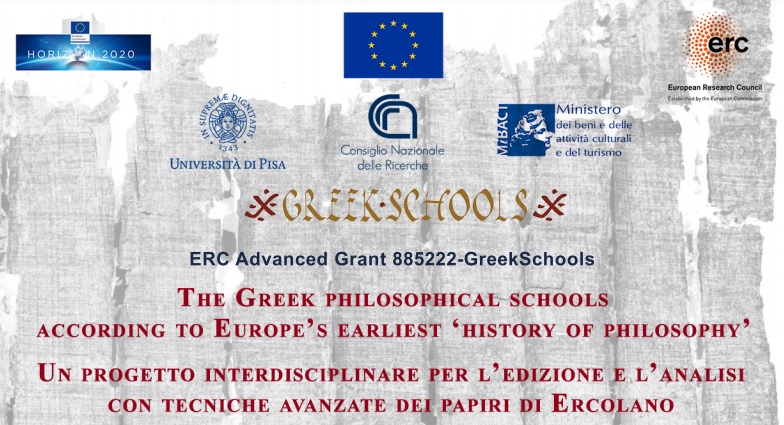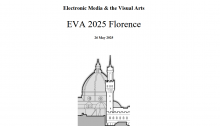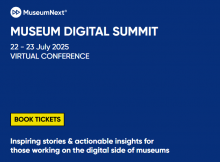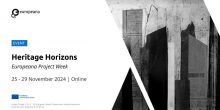
The important papyri retrieved in Herculaneaum and preserved at the National Library in Naples contain basically all our knowledge about Greek philosophical schools. Diogenes Laërtius’ Lives of Eminent Philosophers (3rd century AD) and Philodemus of Gadara’s Syntaxis (75-50 BC) in facts represents the earliest ‘history of philosophy’ to have reached us directly from antiquity. From this work that is exclusively preserved by the Herculaneum papyri we may derive a virtually systematic account of the history of Greek philosophical schools, but unfortunately the original manuscripts which transmit it are in a really poor state, very hard to decipher.
By relying on the most advanced technologies available today, the recently launched project “Greek Schools”, coordinated by the University of Pisa, aims to provide a new innovative critical edition of the whole treatise and its different sections, with extensive introductions and commentaries. By using AI and advanced X-ray and lighting techniques, the technology will help researchers identify written texts, colours, inks and other information that would be invisible to the human eye.
In particular the project will deliver:
- New Greek text with palaeographic and philological apparatus, modern annotated translation, papyrological and philosophical introduction and commentary, by applying noninvasive techniques to both opisthograph and multi-layered papyri belonging to Philodemus’ Syntaxis in order to (a) read the text hidden on the verso, (b) detect, classify and replace overlapping layers, and (c) read the text concealed inside the latter;
- combination of state-of-the-art methods with new, sounder philological approaches in order to produce a more reliable and substantially improved critical text of Philodemus’ treatise and its various sections through an innovative editorial system;
- production of an open-access electronic edition of it through a pioneering open-source scholarly Web platform, engaging the scientific community in an on-going and on-line collaborative review of our critical edition.
The launch meeting was held online on 18th January 2021 (Italian language).
Project website: https://greekschools.eu/





 If you have interesting news and events to point out in the field of digital cultural heritage, we are waiting for your contribution.
If you have interesting news and events to point out in the field of digital cultural heritage, we are waiting for your contribution.
























